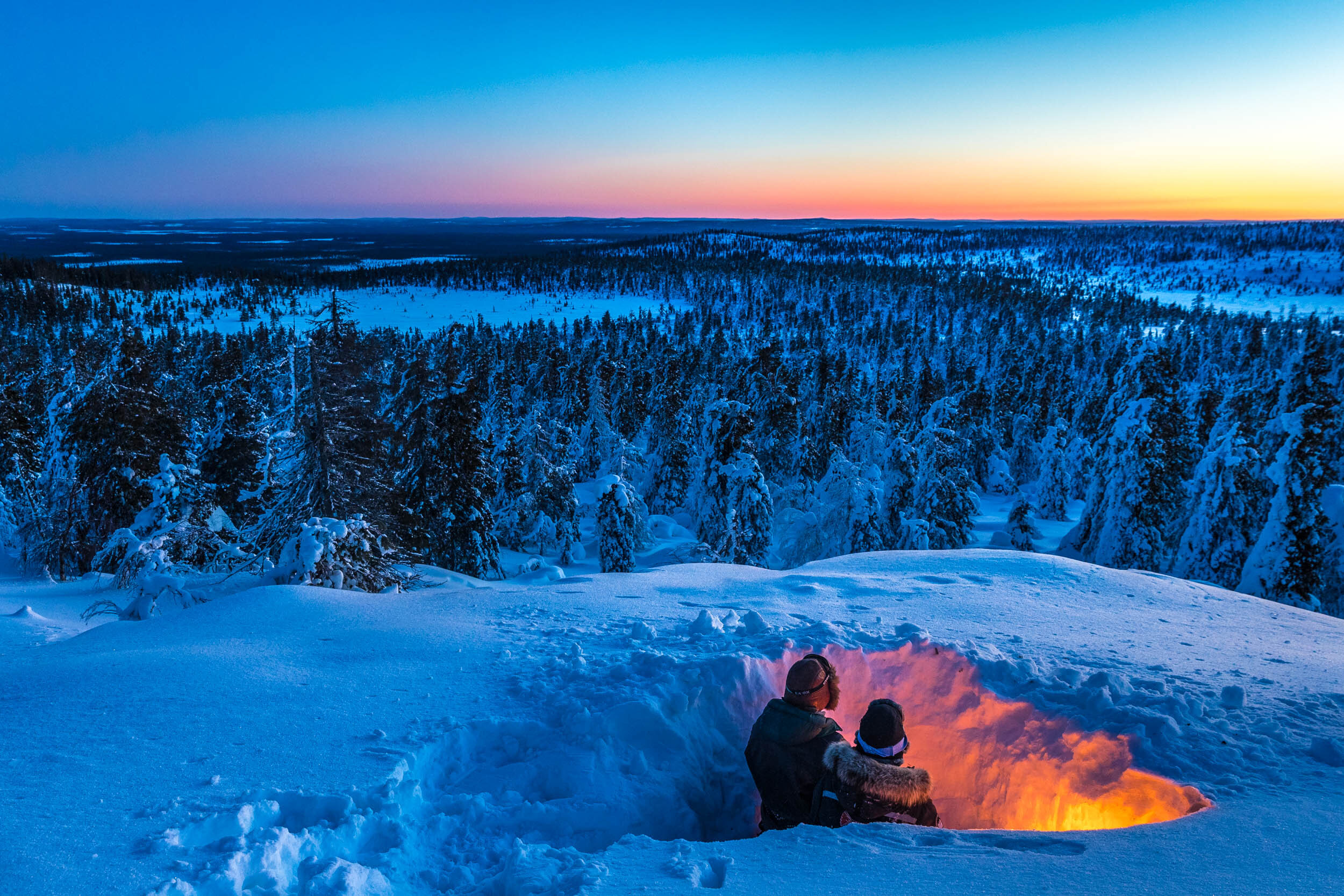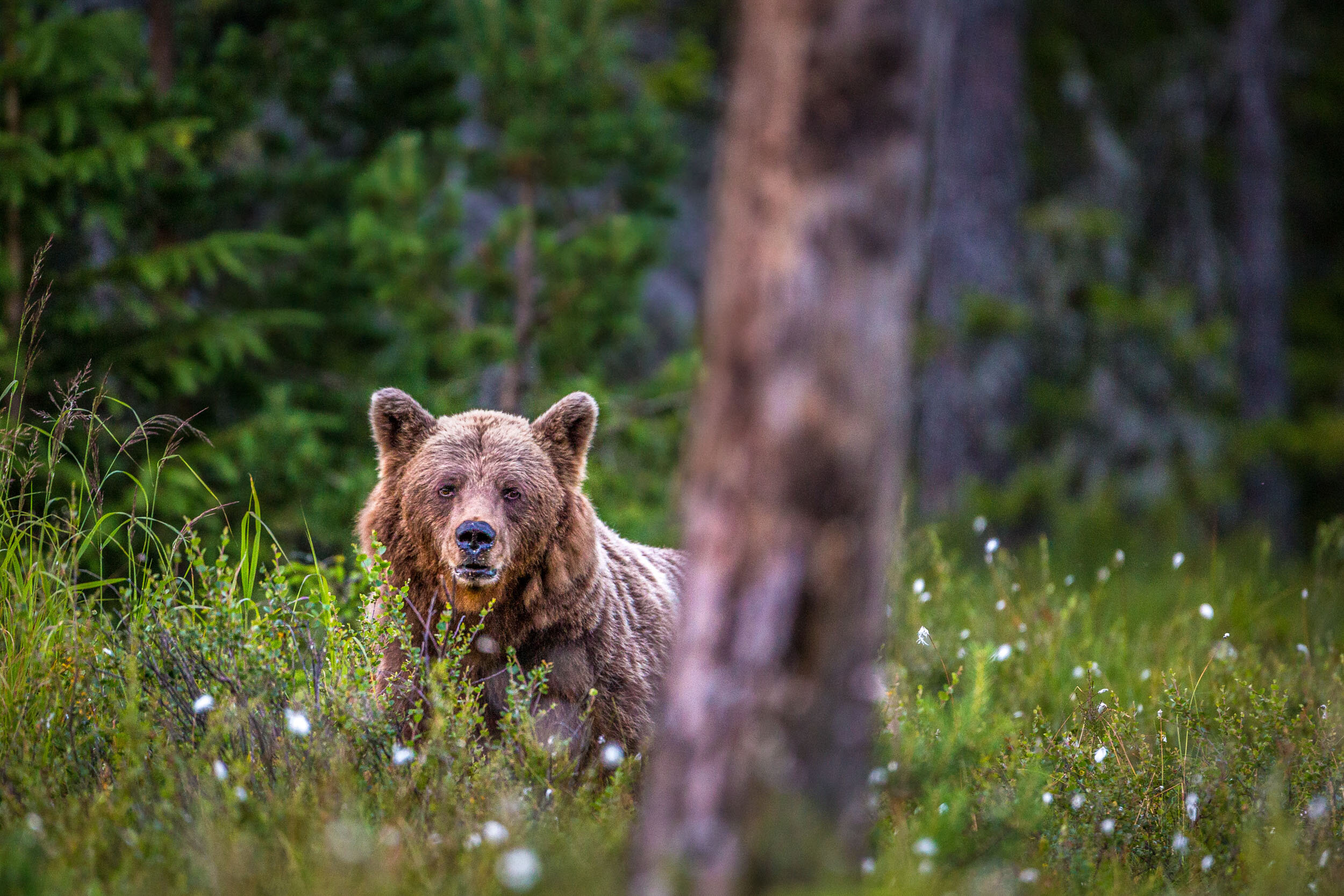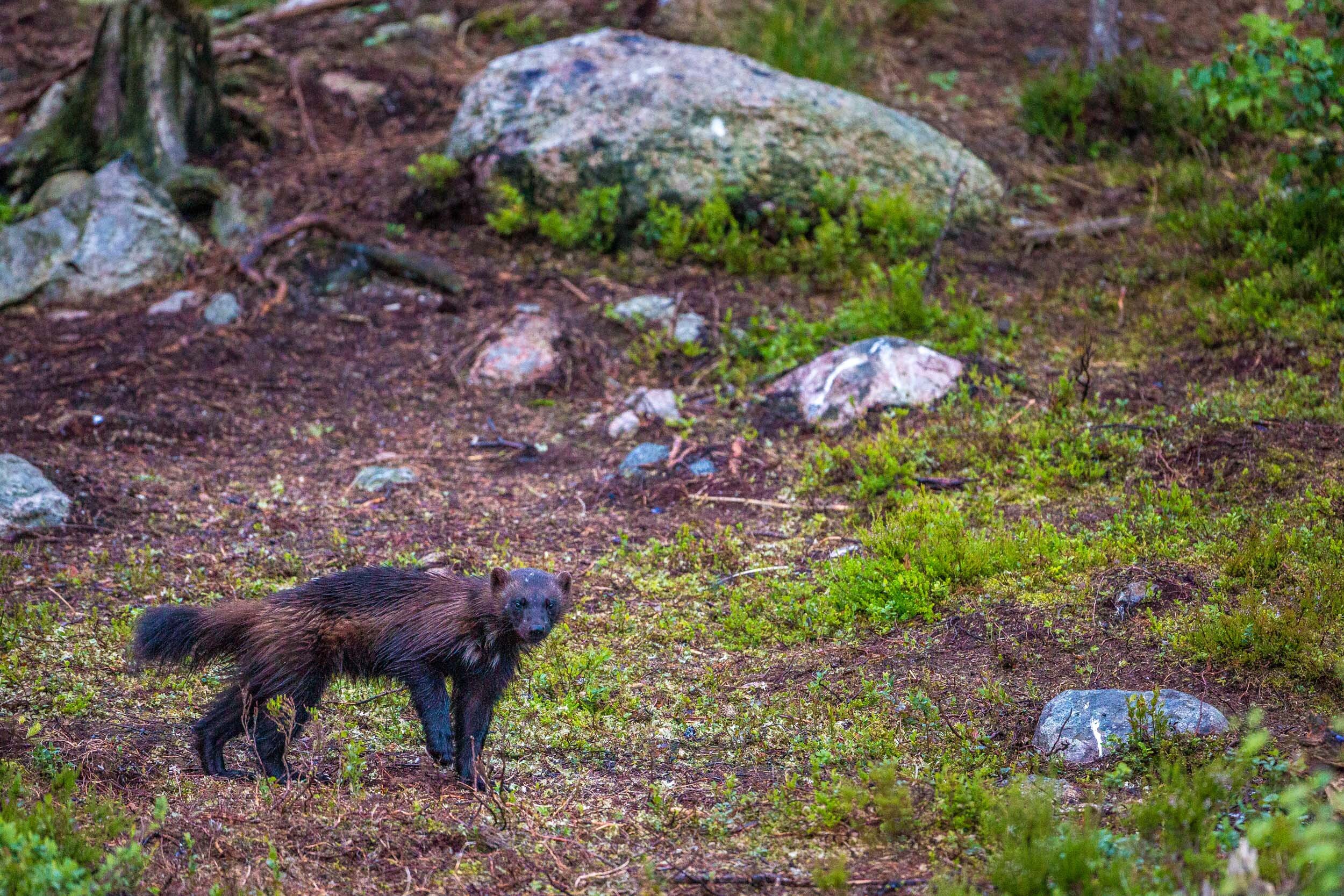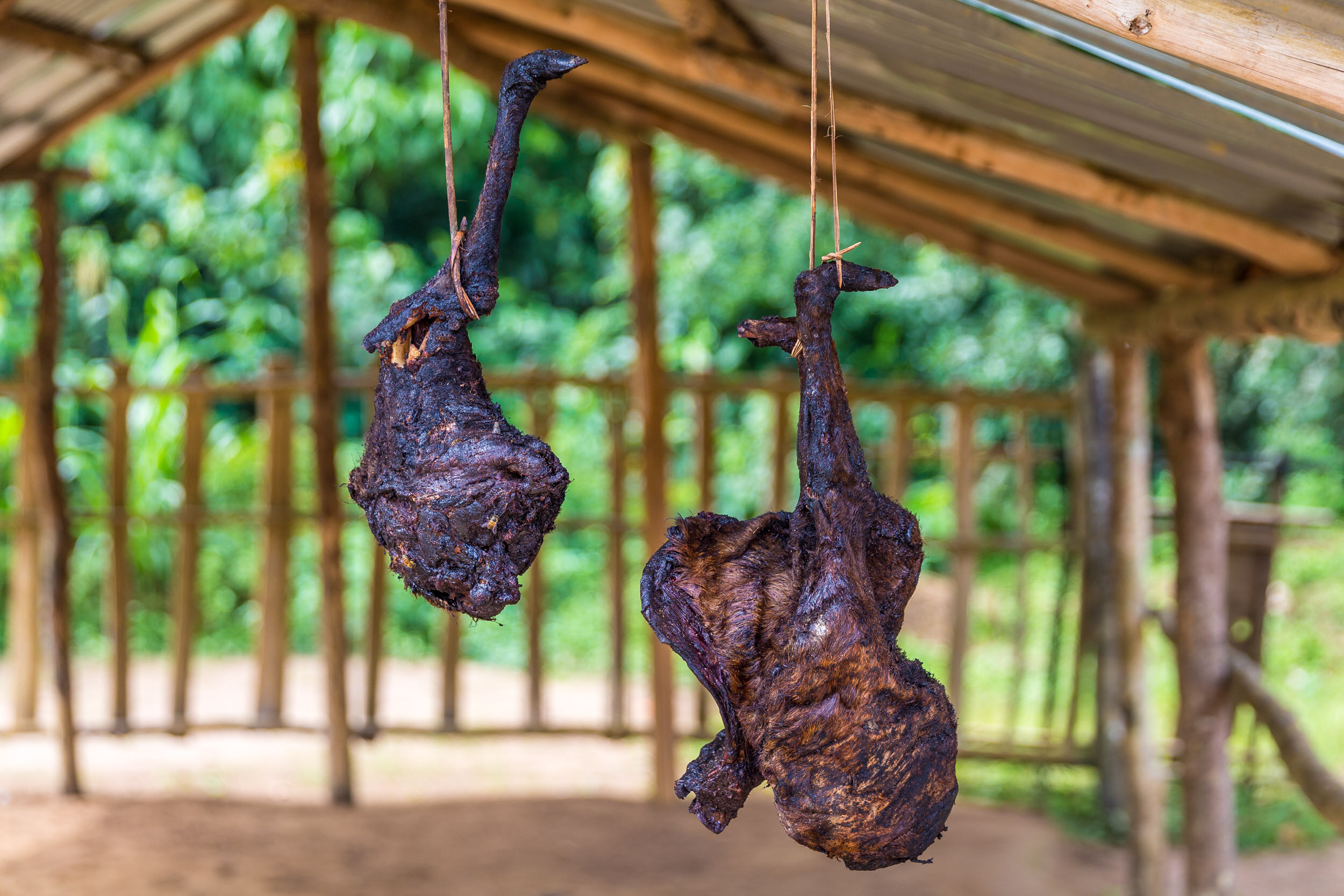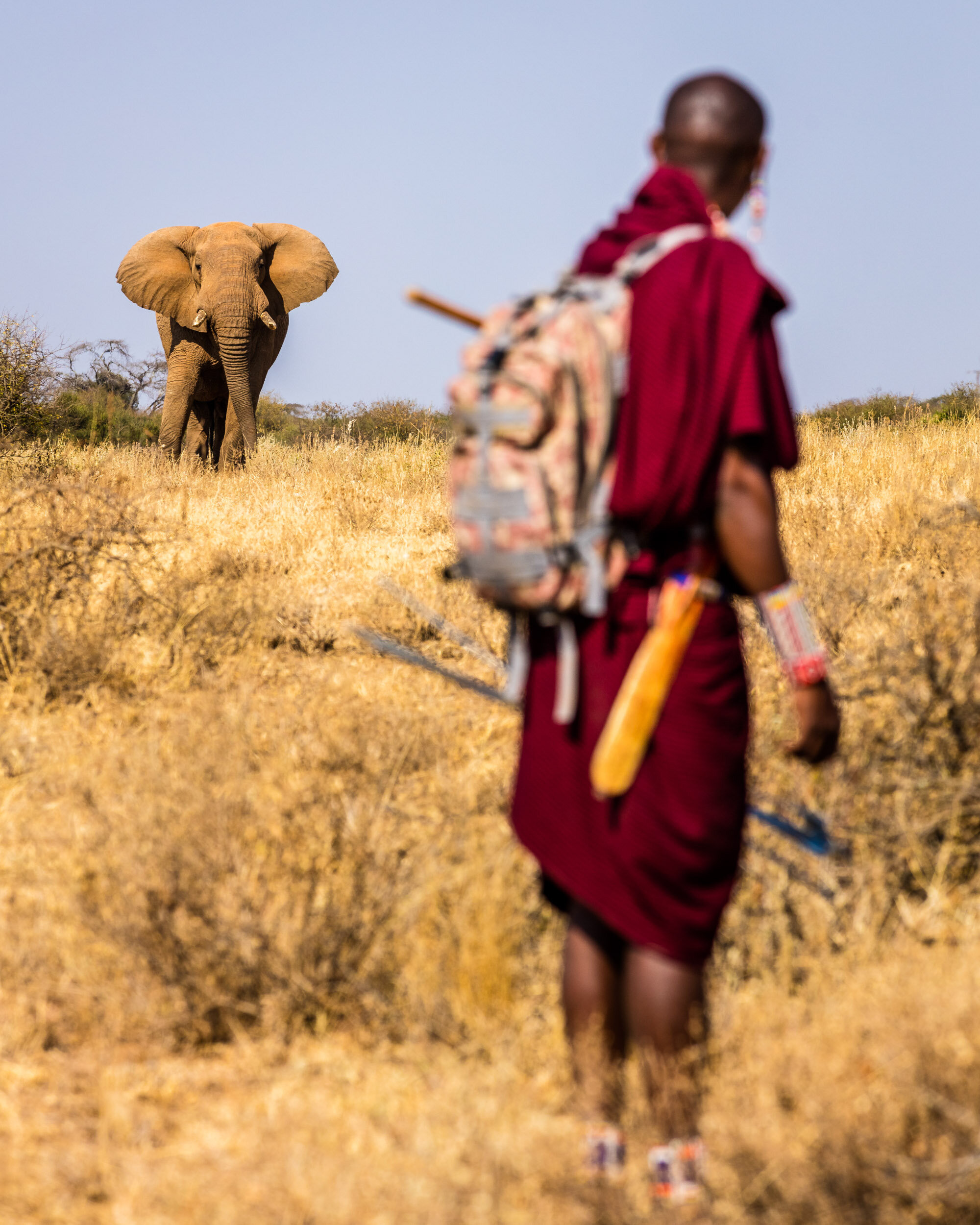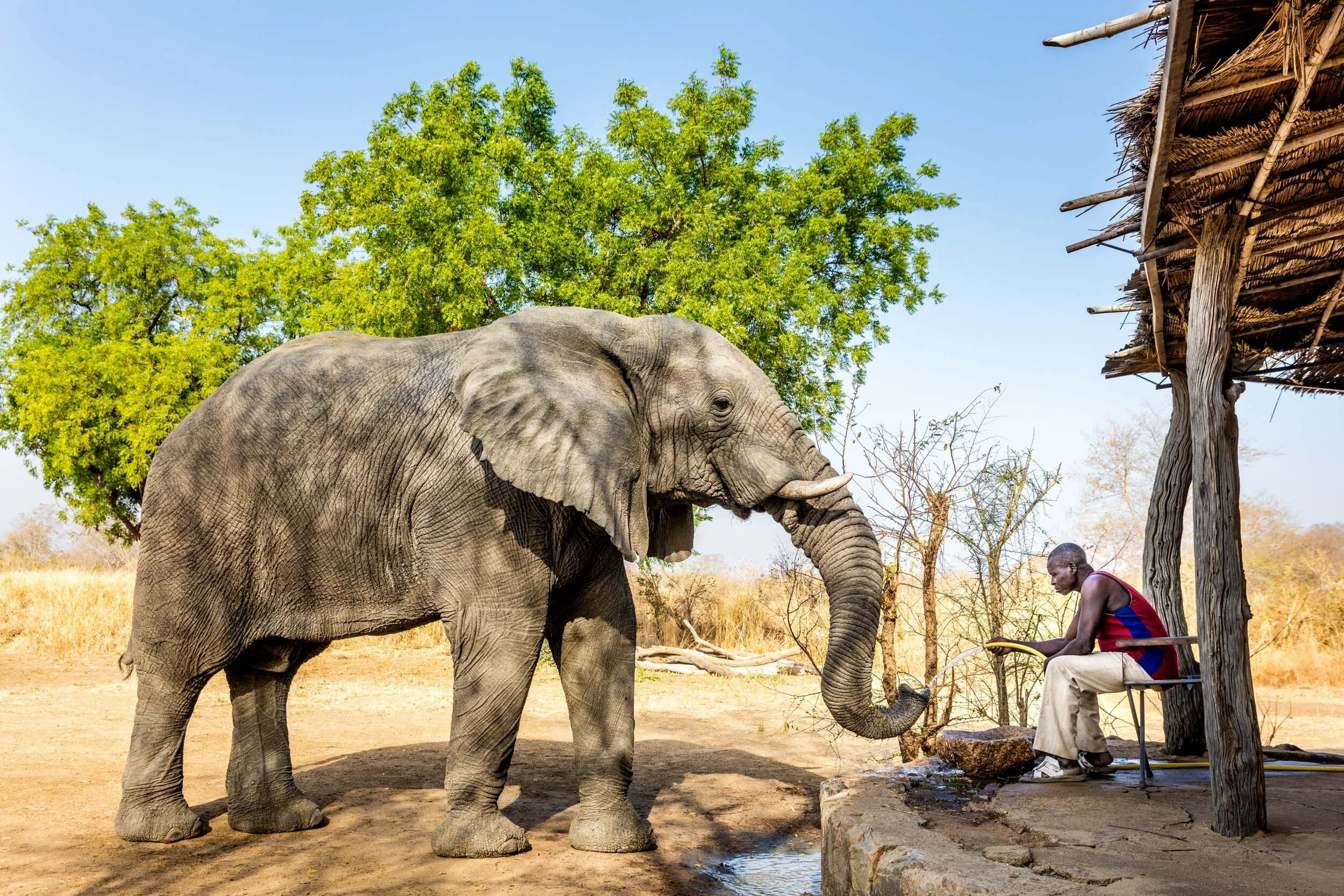It’s been a busy but wonderful start to the year, with three weeks in Kenya followed by a two-week trip to Swedish Lapland – a region Jess and I have fallen head over heels for. It’s such a beautiful place, and it’s right up our alley (albeit an alley it takes 15 hours or so to reach by car): untouched, wide-open spaces, beautiful forests and mountains, very distinct seasons (snow!), and very few people.
Watching the sunset in Pajala, Swedish Lapland.
But some of the issues we’ve come across in my native Sweden have given me a lot to think about – mainly concerning what we’re willing to do ourselves versus what we expect others to do, and how quick we are to judge one another.
There are plenty of wild animals in Sweden; we have a few hundred wolves (mostly in central part of the country), and there are bears, wolverines, lynx and moose. But as someone used to working in Africa, it’s all pretty relaxing. If I go for a walk, I don’t need to constantly check the ground for tracks, or look over my shoulder for buffaloes, elephants or lions. The last time someone was killed by wild wolves in Sweden? More than 200 years ago!
Bears are actually more dangerous than wolves, although it’s usually easy enough to avoid contact.
Wolverines, like lions, hyenas and leopards in Africa, will often kill livestock (including reindeer) if given the opportunity.
Despite this, the predator debate in Sweden is massive – and massively heated – with lots of people arguing passionately against a growing wolf population. And even many of those who want wolves, don’t really want them where they live. We’ve become so used to a convenient, comfortable life, that we instinctively lash out at the thought of something that makes us feel afraid.
And yet, we fully expect other people to live in far more perilous situations. Many of the people who don’t want wolves in their own neighbourhoods would be incensed at the idea of a highway through the Serengeti, and certainly don’t want rhinos, leopards and giraffe to have to make way for farmland, livestock and villages. When news about retaliatory killings of wild animals in Kenya or a poaching incident in Zambia is posted on social media, the outrage knows no bounds. The animals were there first! Humans are awful!
Bushmeat for sale outside Odzala National Park in Congo-Brazzaville.
I think we really need to be more mindful of how we judge others. We can understand and empathize with someone’s position without approving of or agreeing with their views and actions. This goes for virtually every aspect of life, of course, but it certainly applies to questions like wildlife conservation, which tend to give rise to a lot of strong emotions. You can never fully know what someone has gone through, or is going through, and what led them to make certain choices, but it certainly helps to try to imagine yourself in their shoes. Can someone living in a city in western Europe or the US truly imagine not only what it’s like to have potentially deadly animals lurking in the dark just beyond your home, threatening both lives and livelihoods, but also to suspect that both your own government and people elsewhere in the world value the lives of those animals higher than they do yours?
Kamunu Saitoti was once a famed lion hunter but is today a proud member of Lion Guardians, a project designed to mitigate human-predator conflicts in Kenya and Tanzania. After half a lifetime of hatred of the big cats, followed by years of indifference, he now says he feels about the lions where he lives the same way as he does about his livestock - high praise indeed from a Maasai.
This isn’t to say that we should condone the killing of wildlife, or the destruction of natural habitats. Not at all. My own position is clear: we absolutely have to find ways to coexist with wildlife. But as with so many other things, we can’t expect others to do what we’re not willing to do ourselves, and we shouldn’t be setting different standards for Sweden and Kenya (at least not in this respect). And we can certainly show one another more empathy, and greater understanding. The world is in a bit of a mess, if you hadn’t noticed, and becoming increasingly angry and upset probably won’t help setting it right again.
Co-existence is what we must aim for - but being judgemental about the mistakes we make along the way won’t help us get there any faster.

